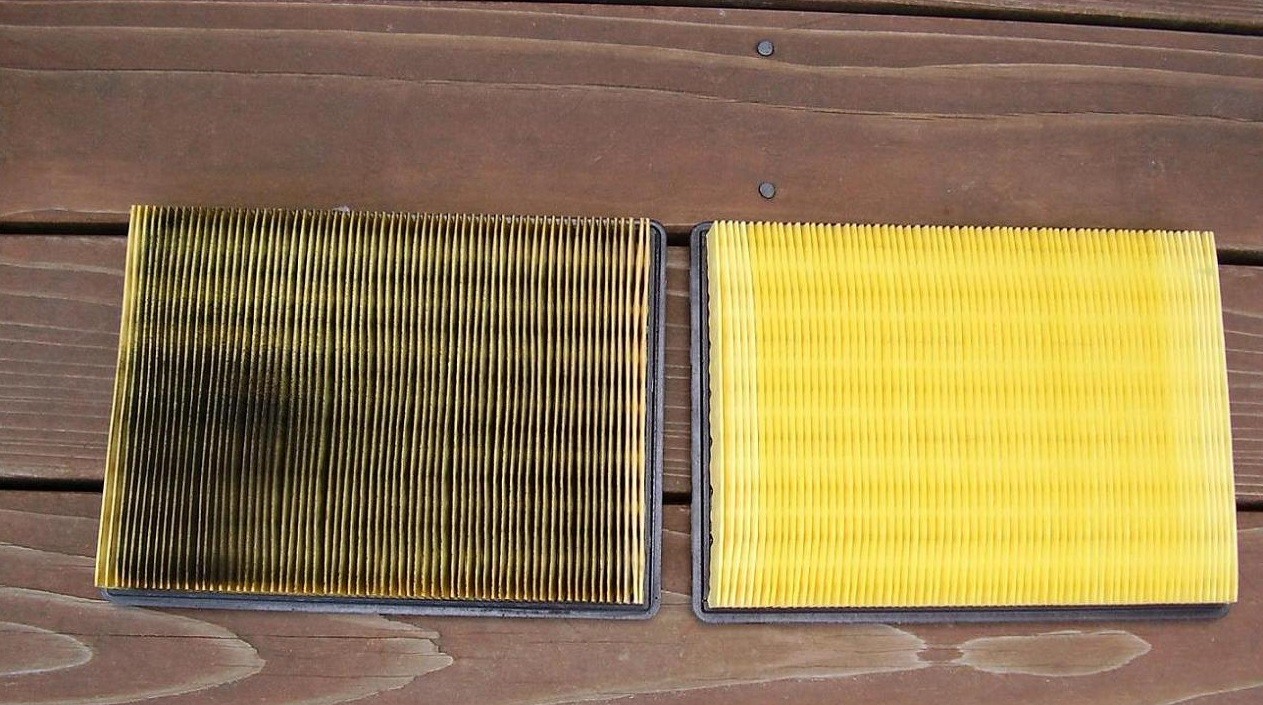
3 main reasons for engine oil to get into the air filter
Content
The air filter is designed to trap debris, dirt and other contaminants, not oil. Sometimes, when the local service mechanic replaces the air filter, the technician will indicate that engine oil has been found; either inside the air filter housing or built into a used filter. While oil in the air filter is not usually a sign of catastrophic engine failure, it is definitely not to be ignored. Let's take a look at the 3 main reasons why oil gets into the air filter.
1. Clogged positive crankcase ventilation (PCV) valve.
The PCV valve is connected to the air intake housing, often by a rubber vacuum hose, which is used to relieve vacuum inside the engine crankcase. This component is usually mounted on top of the cylinder head valve cover, where pressure flows from the bottom half of the engine through the cylinder heads and out into the intake port. The PCV valve is similar to an engine oil filter in that over time it becomes clogged with excess debris (engine oil in this case) and should be replaced according to your vehicle manufacturer's recommendations. If the PCV valve is not replaced as recommended, excessive oil will escape through the PCV valve and enter the air intake system.
What solution? If a clogged PCV valve is found to be the source of engine oil inside your air filter or air intake system, it should be replaced, the air intake cleaned, and a new air filter installed.
2. Worn piston rings.
The second potential source of engine oil leaking into the air filter housing is worn piston rings. The piston rings are mounted on the outer edge of the pistons inside the combustion chamber. The rings are designed to create combustion efficiency and allow small amounts of engine oil to continue to lubricate the internal combustion chamber during each piston stroke. When the rings wear out, they loosen and can cause oil blowout, which usually shows up as blue smoke coming out of the car's exhaust pipe while driving. In the early stages of piston ring wear, excessive oil seepage can cause excess pressure inside the crankcase, which directs more oil through the PCV valve and eventually into the air intake as noted above.
What solution? If you notice engine oil in your air filter or air intake housing, a professional mechanic may recommend that you check the compression. Here the mechanic will install a compression gauge on each individual spark plug hole to check the compression in each cylinder. If the compression is lower than it should be, the cause is usually worn piston rings. Unfortunately, this repair is not as easy as replacing the PCV valve. If worn piston rings are identified as the source, it would be a good idea to start looking for a replacement vehicle, as replacing pistons and rings will likely cost more than the value of the vehicle.
3. Clogged oil channels
The last possible reason for engine oil to enter the air intake system and eventually clog the air filter is due to clogged oil passages. This symptom usually occurs when the engine oil and filter have not been changed as recommended. This is caused by excessive buildup of carbon deposits or sludge inside the engine crankcase. When oil flows inefficiently, excess oil pressure builds up in the engine, causing excess oil to be pushed through the PCV valve into the air intake.
What solution? In this case, it is enough to occasionally change the engine oil, filter, PCV valve and replace the dirty air filter. However, if clogged oil passages are found, it is generally recommended to flush the engine oil and change the oil filter at least twice during the first 1,000 miles to ensure the engine's oil passages are clear of debris.
What is the job of an air filter?
The air filter on most modern internal combustion engines is located inside the air intake housing, which is mounted on top of the engine. It is attached to the fuel injection system (or turbocharger) and is designed to efficiently supply air (oxygen) to the fuel system to mix with the fuel before it enters the combustion chamber. The main job of an air filter is to remove particles of dirt, dust, debris and other impurities before the air mixes with liquid gasoline (or diesel fuel) and turns into steam. When the air filter becomes clogged with debris, it can result in reduced fuel efficiency and engine power output. If oil is found inside the air filter, this can also significantly affect engine performance.
If you're doing routine maintenance on your car, truck, or SUV and you find engine oil inside the air filter or air intake housing, it might be a good idea to have a professional mechanic come to you for an on-site inspection. Identifying the primary source correctly can save you a huge amount of money on major repairs or even replacing your car ahead of time.